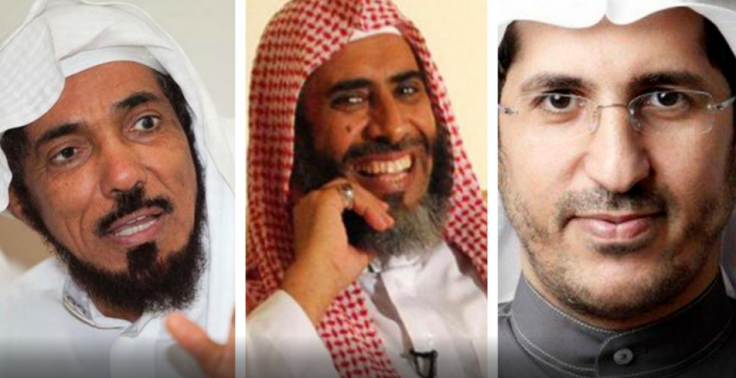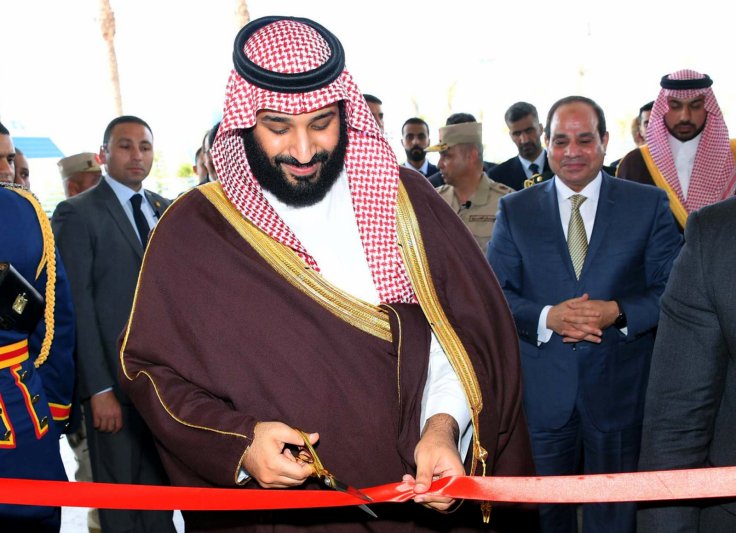Saudi Arabia has sentenced to death hard-line Islamic preacher and law professor Awad Al-Qarni, who propagated the radical ideologies of the Muslim Brotherhood, according to a reports in the UK press.
Al-Qarni was arrested in 2017 as part of a crackdown against radical Islamists launched by Crown Prince Mohammed bin Salman.
Al-Qarni and several other extremist preachers associated with the Sahwa movement (Islamic Awakening) were arrested in September 2017. Most of the clerics who were arrested at that time had been imprisoned earlier for extremist views, criticism of the royal family and frequent calls for Jihad against the westerners.
Earlier Reports of Execution in Qatari Press
There have been reports in the Qatari press earlier as well, regarding the impending execution of Al-Qarni and several other clerics imprisoned in the crackdown on extremism.

In 2019, Al Jazeera claimed that Al-Qarni, Salman al-Awdah, Ali al-Omari and Safar al-Hawali al-Ghami were going to be executed immediately.
"Saudi Arabia is currently cracking down on the Sahwa, or Awakening, with at least three figures linked to the movement reported to be on death row. ... They could be executed at any moment – reports citing unnamed government sources said they will be convicted and killed after Ramadan ..." Al Jazeera had reported.
The latest claim that Al-Qarni has been sentenced to death was made by his son Nasser, who is living in exile in the UK. The Guardian newspaper said that Nasser told it about the Saudi death penalty for his father.
The outlet reported that the charges against the preacher includes his use of social media channels like Twitter and WhatsApp for praising the Muslim Brotherhood.
What is Sahwa movement?
Saudi Arabian hate preachers inspired by the Muslim Brotherhood in Egypt founded the Sahwa movement decades ago. Some of the early proponents of the movement were clerics who fled Egypt after the authorities suppressed the Brotherhood. Sahwa and Brotherhood share the ideologies of Sayyed Qutb, whose hard-line Islamist teachings came to be known as Qutbism.
Preachers like Safar Al-Hawali and Salman Al-Ouda were in the forefront of the movement in Saudi Arabia. The movement genrally called for bigger role for clergy in governing and society but also advocated jihad and the targeting of westerners in "Muslim lands."
Early Stages of Sahwa
In the early phase the Sahwa enjoyed generous support from the Saudi state. When thousands of Muslim Brotherhood activists fled Egypt in the 1950s, they were given refuge in the Kingdom by Saudi King Faisal al-Saud.
Frictions
However, frictions between the Sahwa and the state started emerging in the 1990s, owing to its increasingly strident political views that challenged the Saudi establishment. The rift was a gradual one, with Sahwa taking cues and inspiration from the Islamist revolutions of the kind that happened in Iran. The rising calls from Sahwa for more hard-line religious elements in governance was seen as an Islamist absolutism that would endanger the Saudi system.

Crackdown Under MbS
The tipping point came in 2012, in the aftermath of the Arab Spring revolutions in the region that challenged long-entrenched government systems in the region. The Muslim Brotherhood even came to power briefly in Egypt, with the the generous help of Qatar. The rise of brotherhood and its ultra-radical Islamist ideologies emboldened Saudi leaders of Sahwa, who started demanding political reforms that would integrate regressive religious principles in governance and society.
The Saudi crackdown of the Sahwa movement that started in 2012 culminated with the emergence of Mohammad bin Salman as the crown prince and the de facto ruler in 2017. Preachers like Salman al-Awdah, Awad al-Qarni and Ali al-Omari were imprisoned in 2017 as the reformist leader pledged to make Saudi Islam more moderate and go ahead with the Vision 2030 progam.









